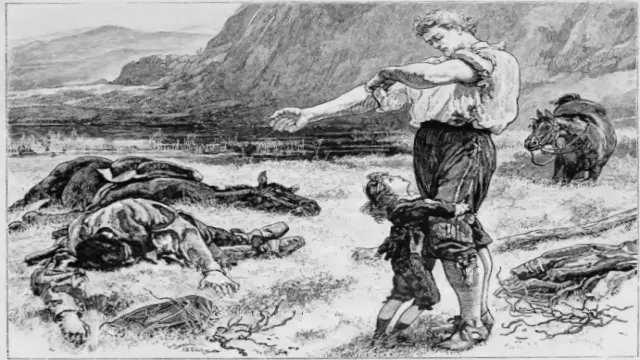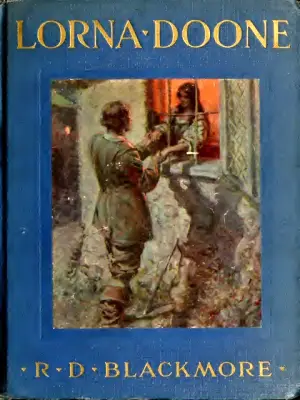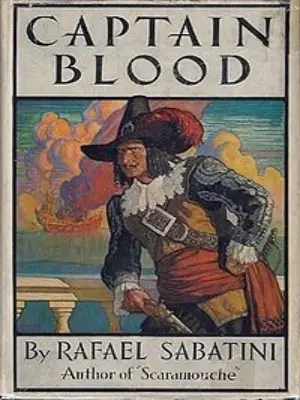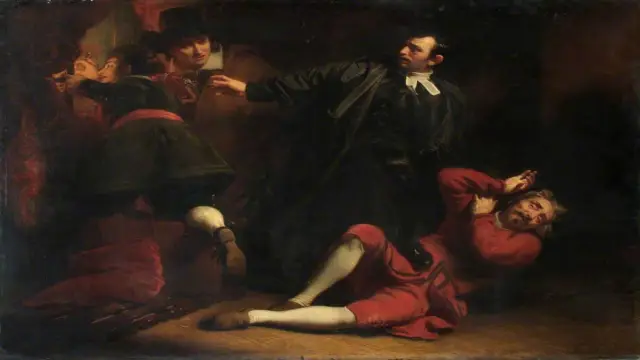The Monmouth Rebellion in Fiction: A Literary Exploration
The Monmouth Rebellion of 1685 is a fascinating chapter in British history. It was a failed attempt to overthrow King James II, led by James Scott, the Duke of Monmouth. Despite its dramatic potential, the rebellion hasn’t inspired as many novels as you might expect. However, a few notable works have used it as a backdrop or central theme.
Let’s explore these stories and how they bring the Monmouth Rebellion to life.
Lorna Doone: A Romantic Tale of Exmoor
Lorna Doone by R.D. Blackmore is perhaps the most famous novel linked to the Monmouth Rebellion. Published in 1869, it remains a beloved classic.

The story is set on Exmoor and follows John Ridd, a farmer, and Lorna Doone, a member of the outlawed Doone family. The Doones, once noble, have turned to crime. Lorna is promised to Carver Doone, the clan’s heir, but she falls in love with John.
The rebellion plays a key role in the plot. The Doones side with the Duke of Monmouth, hoping to regain their lost status. After the Battle of Sedgemoor, John is captured and tried in London. He proves his innocence and reunites with Lorna.
The novel is a romance, not a historical account. But it captures the era’s atmosphere and the rebellion’s impact on ordinary lives. Its enduring popularity has led to multiple film and TV adaptations.
Micah Clarke: Arthur Conan Doyle’s Historical Adventure
Arthur Conan Doyle, best known for Sherlock Holmes, also wrote Micah Clarke (1889). This novel is a coming-of-age story set against the Monmouth Rebellion.
The protagonist, Micah Clarke, is a young man drawn into the rebellion. The story follows his adventures, culminating in the Battle of Sedgemoor. Doyle includes historical figures like the Duke of Monmouth and Judge Jeffreys.

The novel explores the rebellion’s religious and political dimensions. It also features Doyle’s trademark storytelling skill. While not as famous as his detective stories, Micah Clarke is a compelling read.
Doyle once expressed frustration that his non-Holmes works were overlooked. Micah Clarke is a reminder of his versatility as a writer.
Captain Blood: From Rebellion to Piracy
Rafael Sabatini’s Captain Blood (1922) begins with the Monmouth Rebellion. The protagonist, Peter Blood, is an Irish doctor in Somerset. He treats wounded rebels after Sedgemoor and is unjustly convicted by Judge Jeffreys.
Blood is transported to the Caribbean as a slave. He escapes, becomes a pirate, and eventually rises to become Governor of Jamaica. Only the early chapters focus on the rebellion, but they vividly depict its chaos and injustice.

Sabatini’s portrayal of Judge Jeffreys is particularly striking. He captures the judge’s cruelty and the arbitrary nature of his trials. Captain Blood is a swashbuckling adventure with a historical foundation.
The Real-Life Inspiration: Colonel Thomas Blood
While not a novel, the story of Colonel Thomas Blood is worth mentioning. Blood was an Irish adventurer who famously tried to steal the Crown Jewels in 1671.
Blood’s audacity and cunning made him a legend. After his capture, King Charles II was so amused that he pardoned him and even granted him a pension. Blood’s life inspired characters like Peter Blood in Sabatini’s novel.
His story adds a layer of intrigue to the era. It shows how the Monmouth Rebellion and its aftermath were part of a broader tapestry of adventure and rebellion.
Why Aren’t There More Novels About the Monmouth Rebellion?
Given its dramatic potential, it’s surprising that the Monmouth Rebellion hasn’t inspired more fiction. Here are a few possible reasons:
- Complex Historical Context: The rebellion’s religious and political nuances can be hard to translate into fiction.
- Limited Appeal: The rebellion is less well-known than events like the English Civil War or the Tudor period.
- Focus on Romance: Many authors prefer to focus on personal stories rather than historical events.
Despite these challenges, the rebellion remains a rich source of inspiration for those who explore it.
Conclusion: The Monmouth Rebellion’s Literary Legacy
While the Monmouth Rebellion hasn’t spawned countless novels, the ones that do exist are memorable. Lorna Doone, Micah Clarke, and Captain Blood each offer a unique perspective on this turbulent period.
These stories remind us that history is more than dates and battles. It’s about people, their struggles, and their dreams. Whether through romance, adventure, or drama, these novels bring the Monmouth Rebellion to life in vivid detail.
If you’re interested in historical fiction, these books are a great place to start. They offer a blend of history and storytelling that’s both entertaining and enlightening.

